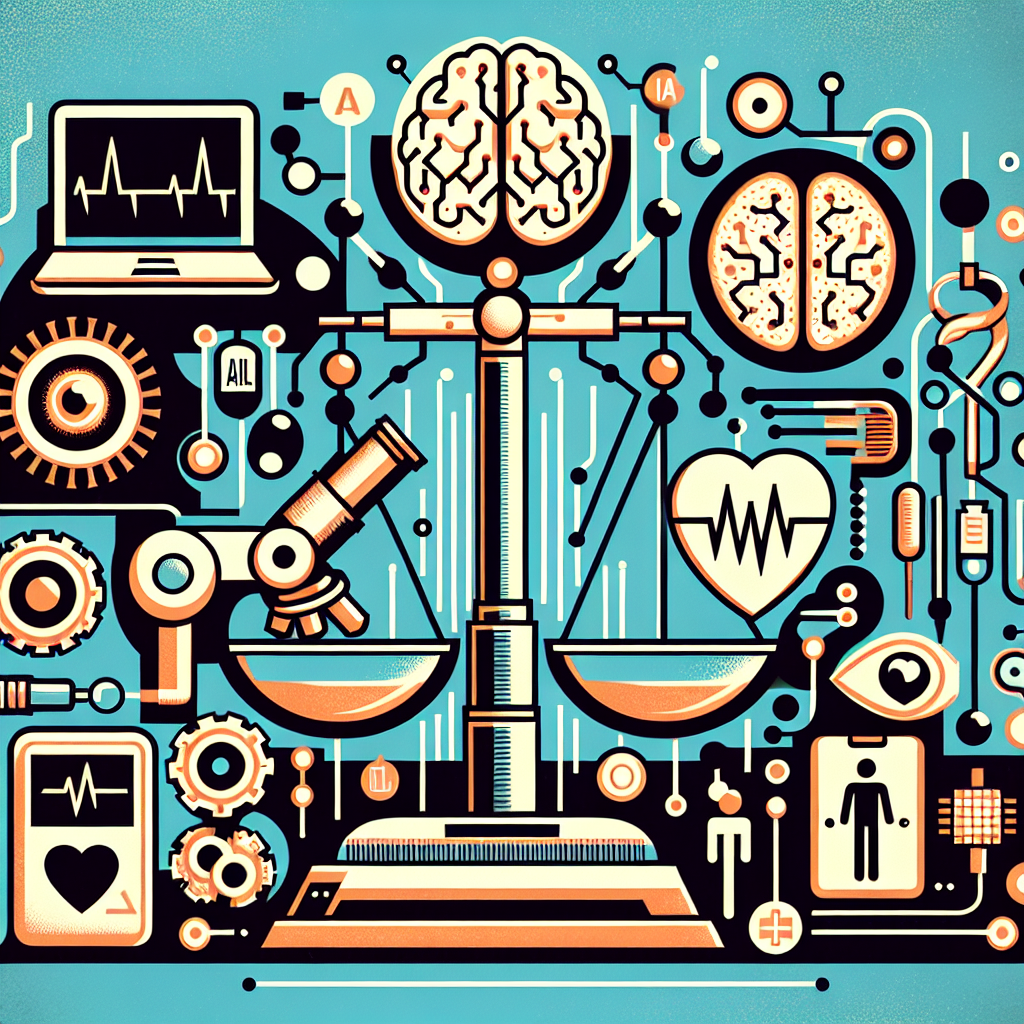Artificial Intelligence (AI) has revolutionized various industries, and healthcare is no exception. The use of AI in healthcare has the potential to address health inequities and improve access to quality care for all individuals. In this article, we will explore how AI is being utilized in healthcare to bridge the gap in health disparities and provide equitable healthcare services.
AI in Healthcare: Addressing Health Inequities
Health inequities refer to the unequal distribution of health resources, opportunities, and outcomes among different population groups. Factors such as socioeconomic status, race, ethnicity, geography, and gender can contribute to disparities in healthcare access and quality. AI has the potential to address these health inequities by improving efficiency, accuracy, and accessibility of healthcare services.
One of the key areas where AI is making a significant impact is in diagnostic imaging. AI algorithms can analyze medical images such as X-rays, MRIs, and CT scans to detect abnormalities and assist radiologists in making accurate diagnoses. This technology can help reduce errors and improve the speed of diagnosis, especially in areas where there is a shortage of radiologists. By providing timely and accurate diagnoses, AI can help ensure that all patients receive the care they need, regardless of their location or socioeconomic status.
AI is also being used to personalize treatment plans for patients based on their unique characteristics and medical history. By analyzing large amounts of data, AI algorithms can identify patterns and predict how patients are likely to respond to different treatments. This personalized approach to healthcare can help improve outcomes and reduce disparities in treatment effectiveness among different patient groups.
In addition to diagnosis and treatment, AI is also being used to improve access to healthcare services. Telemedicine platforms powered by AI technology enable patients to consult with healthcare providers remotely, reducing the need for in-person visits and making healthcare more accessible to individuals in rural or underserved areas. AI chatbots and virtual assistants can also provide patients with information about their health conditions, medications, and treatment options, helping them make informed decisions about their care.
Furthermore, AI can help healthcare providers identify high-risk populations and proactively intervene to prevent adverse health outcomes. By analyzing data from electronic health records, wearables, and other sources, AI algorithms can predict which patients are at risk of developing certain conditions and recommend preventive measures. This proactive approach to healthcare can help reduce disparities in health outcomes and improve the overall well-being of populations.
Despite the potential benefits of AI in healthcare, there are also challenges and ethical considerations that need to be addressed. For example, concerns about data privacy and security, algorithm bias, and the impact of AI on healthcare workforce are important considerations that must be taken into account when implementing AI technologies in healthcare settings. It is essential for healthcare organizations to prioritize transparency, accountability, and equity in the development and deployment of AI solutions to ensure that all individuals have access to safe and effective healthcare services.
FAQs
Q: How is AI being used in healthcare?
A: AI is being used in healthcare to improve efficiency, accuracy, and accessibility of healthcare services. It is being used in diagnostic imaging, personalized treatment planning, telemedicine, and population health management, among other applications.
Q: How can AI help address health inequities?
A: AI can help address health inequities by improving access to healthcare services, providing timely and accurate diagnoses, personalizing treatment plans, and identifying high-risk populations for preventive interventions.
Q: What are some challenges of using AI in healthcare?
A: Some challenges of using AI in healthcare include concerns about data privacy and security, algorithm bias, and the impact of AI on the healthcare workforce. It is essential for healthcare organizations to address these challenges to ensure the ethical and equitable use of AI in healthcare.
In conclusion, AI has the potential to transform healthcare and address health inequities by improving access to quality care, providing personalized treatment plans, and identifying high-risk populations for preventive interventions. By prioritizing transparency, accountability, and equity in the development and deployment of AI technologies, healthcare organizations can ensure that all individuals have access to safe and effective healthcare services.AI has the potential to revolutionize healthcare and bridge the gap in health disparities, ultimately improving the overall well-being of populations around the world.

